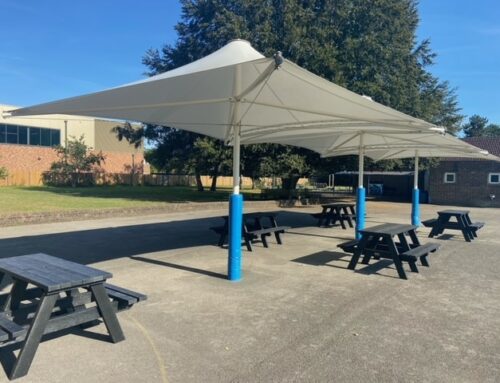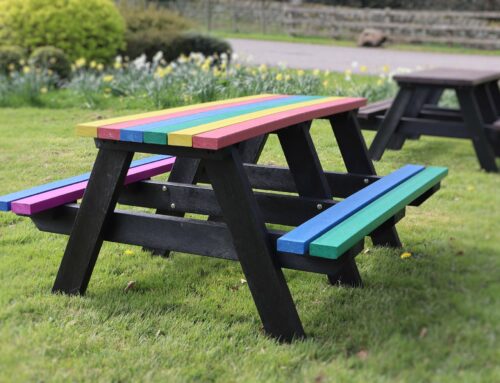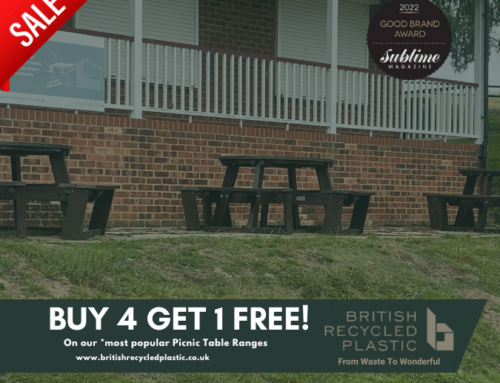We’ve all heard the talk about circular economies (and we even wrote a blog about it), but did you know you can apply the same principles to keep your garden circular? One of the key principles of circular economics is the reuse and repurposing of as many materials as possible, reframing what we think of as “waste” and looking for opportunities to make it useful. Put simply, your garden waste doesn’t need to be wasted (and probably shouldn’t be). Instead, turn your waste into wonderful by the magic of composting…
Magic, you say? Yes, magic! Well, it certainly feels like magic when you can grow food, eat the food and then turn all the scraps, peelings and exhausted plants back into food again. That’s definitely our kind of wizadry – “compostum generatum!”.
How does composting work?
The mysterious art of composting isn’t half as complicated as you might think and you only need four elements for success:
- Organic material – garden waste, kitchen waste, newspapers
- Soil – source of micro-organisms
- Water – to feed the micro-organisms
- Air – more micro-organism food
The organic material is broken down by the resident micro-organisms and in the process is turned from solid chunks into a fine, granular compost. When the twigs from your garden are broken down in this way, the chemicals they contain are reduced to their smallest parts and nutrients such as nitrogen, potassium and phosphorous are released into the developing compost and held there. The micro-organisms produce carbon dioxide (don’t worry – it’s immediately soaked up by your garden plants) and heat – which is why you’ll have seen compost heaps steaming in cold weather. The nutrients held within the compost stay there until they bump up against something which is capable of absorbing them – like a brand new carrot seedling (or potato, courgette, cauliflower, pea or bean).
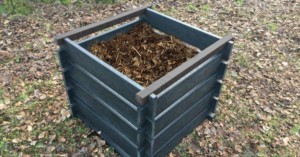
Why is composting such a good thing to do?
We can all agree that wasting resources is not a great thing to do. Here at British Recycled Plastic our business is based on this very principle – we like to think of ourselves as professional Wombles (for those of you too young to get the reference, the Wombles were furry creatures from the 1970s who recycled before it was a cool thing to do). With that in mind, composting is a great way to reduce waste and keep your garden circular. It’s not the only reason, though. Commercial compost, the kind you pick up at the gardening superstore, is commonly made from the proceeds of kerbside compost collections and the quality depends heavily on how careful and selective people are with their kitchen compost bins. In addition, the composting process – which obviously takes place on an industrial scale – is artificially accelerated by the use of heat under pressure; a big no-no when we’re trying to reduce our collective carbon footprint. Anyone who’s used any quantity of commercial compost in recent years can attest to the decline in quality, with chunks of rubbery material (generally inorganic materials) frequently reported. When you turn your own garden and kitchen waste into a wonderful, rich compost, you’re in complete control of the ingredients and the compost develops just as nature intended. It takes longer than a trip to the superstore, but we promise you it’s worth the wait.
How do I get started?
Choose the right spot. You’re best picking somewhere flat and well-drained, downwind from your home. Good drainage is important to prevent rotting and – although a well-kept heap shouldn’t smell particularly bad, you’d probably prefer to keep the fragrance away from your home on those hot, summer days.
Buy a decent compost bin. Recycled plastic is a great choice, not only because it repurposes waste plastic which would otherwise end up in landfill, but because it’s waterproof and resistant to rot. You can read more about our range of composters a little further down.
Be selective about what you put in. Try to get a decent mix of “green waste” and “brown waste”. Green waste refers to softer materials which break down more easily and tend to have a higher water content, while brown waste refers to tougher, harder materials. Ensuring you have a mix of both ensures that your heap doesn’t become too wet and compacted from too much green waste. Making sure there’s plenty of brown waste provides air pockets for ventilation. Remember – those micro-organisms need both water and oxygen to keep them alive and active.
Welcome the worms! Worms are wiggly little compost-processing machines and every gardener’s friend. They process soil, turning it from compact, solid blocks into gorgeous, aerated, crumbly material. Ensure that your compost bin is well-drained and, as well as providing room for water to escape, you’ll be providing access for the worms to move in and get to work.
Our range of composters
We have several composters available, to suit a range of projects and gardening needs. Our quick-assembly Redacre Compost Bin is convenient and compact, allowing you to get the most out of your garden or allotment. The size of the Redacre – 900mm x 900mm x 800mm high – makes it a perfect choice for those recycling limited amounts of kitchen or garden waste.

Keen horticulturalists looking for something a little more heavy-duty may want to consider our new Callis Compost Bin, available in three sizes: single – 800mm x 800mm x 800mm, double – 1600mm x 800mm x 800mm, or triple – 2400mm x 800mm x 800mm. Lids can be purchased separately and come in split sections, so only 9.9kg needs lifting to gain access.
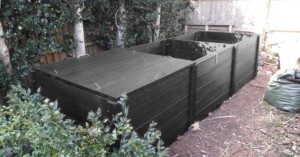
Based on the popular Callis, the Compact Callis is just 500mm deep, so will sit neatly against a wall. This composter also pairs beautifully with our 500mm raised beds, making the perfect combination for urban gardeners or balconies. Both the Callis and the Compact Callis have removeable slats at the bottom to allow easier access to your compost.
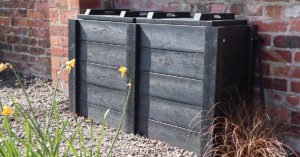
Why choose British Recycled Plastic products?
British Recycled Plastic provides a range of ultra-tough products that keep plastic out of landfill and put to good use; our products can be returned for recycling at the end of their useful life. We’re proud of how our role in the world of recycling is helping to reduce landfill mass and create products that are useful, long lasting and beautiful. Engineered from 100% British waste, our products are guaranteed for 25 years and supplied to thousands of organisations and private homes across the UK: we believe our products are the very best that money can buy.
Get in touch
If you want to make a fast and efficient purchase, we’d recommend you head straight to the webshop. Otherwise, give our fab and friendly team a yell by either phone or email:
01422 419 555
For those of you who’ve read this far, here’s your reward…enjoy ????


